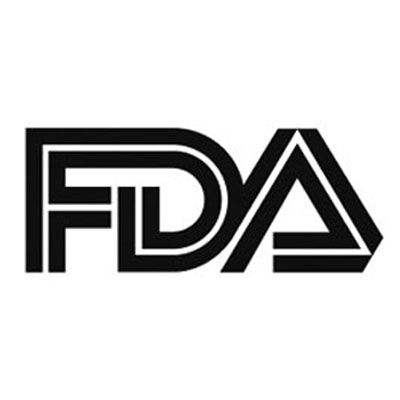Pembrolizumab sBLA Resubmitted to FDA With New Dosing Frequency
"The oncology community is rapidly adapting cancer care during the COVID-19 pandemic in order to minimize exposure and keep cancer patients as safe as possible. Now more than ever, we believe it is critical to pursue a six-week dosing schedule for Keytruda."

A supplemental Biologics License Application (sBLA) for pembrolizumab (Keytruda) has been resubmitted to the FDA to update the dosing frequency to include a 400 mg dose administered via infusion over 30 minutes, every 6 weeks. The resubmission of the sBLA is a solution to Complete Response Letter (CRL) issued to Merck by the FDA in February 2020. If approved, this dose of pembrolizumab will be an expansion of the prior approval for the pembrolizumab dose of 200 mg every 3 weeks.1
“The oncology community is rapidly adapting cancer care during the COVID-19 pandemic in order to minimize exposure and keep cancer patients as safe as possible. Now more than ever, we believe it is critical to pursue a six-week dosing schedule for KEYTRUDA,” said Roy Baynes, MD, PhD, senior vice president and head of Global Clinical Development, chief medical officer, Merck Research Laboratories. “We appreciate FDA’s guidance during the resubmission period and look forward to working closely with the agency as they continue their review.”
The applications for pembrolizumab were submitted based on pharmacokinetic modeling and simulation data, which were presented at the 2018 American Society of Oncology (ASCO) Annual Meeting. The European Medicines Agency accepted applications for pembrolizumab at the 400 mg dose, based on these results.2
Lala et al noted in their presentation that that having an alternative dosing regimen for pembrolizumab would make prescriptions more convenient for physicians and their patients. The results of an analysis of the pharmacokinetics showed the higher dose of pembrolizumab (400 mg Q6W) was similar to the approved dose regimen.3
Pembrolizumab, an anti-PD1 therapy has indications across many other disease states including, non–small cell lung cancer, small cell lung cancer, head and neck squamous cell cancer, urothelial carcinoma, non-muscle invasive bladder cancer, microsatellite instability-high cancer, esophageal cancer, cervical cancer, and renal cell carcinoma.1
References:
1. Merck resubmits supplemental biologics license applications (sblas) for keytruda® (pembrolizumab) six-week dosing schedule [new release]. Kenilworth, NJ: Merck; April 23, 2020. https://bit.ly/3eJATwR. Accessed April 23, 2020.
2. Merck receives complete response letter from the us fda for supplemental biologics license applications (sblas) for keytruda® (pembrolizumab) six-week dosing schedule [news release]. Kenilworth, NJ: Merck; February 18, 2020. https://bit.ly/2S0XCuM. April 23, 2020.
3. Lala M, Li M, Sinha V, et al. A six-weekly (Q6W) dosing schedule for pembrolizumab based on an exposure-response (E-R) evaluation using modeling and simulation. J Clin Oncol. 2018. 38 (15):3062-3062. doi: 10.1200/JCO.2018.36.15_suppl.3062